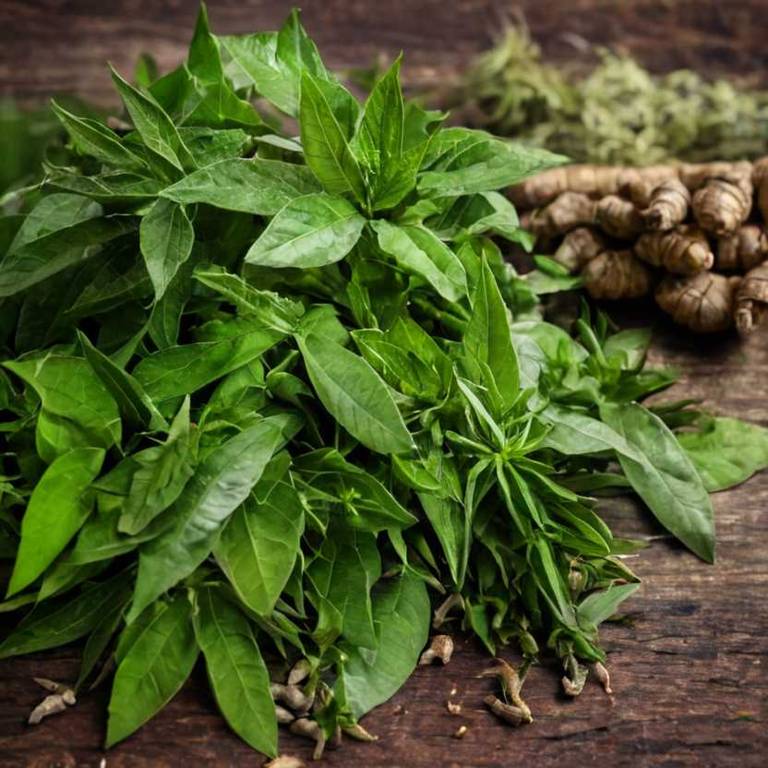Noni (Morinda citrifolia)
Noni (Morinda citrifolia) is a member of the Rubiaceae family, native to Polynesia, Micronesia, and Melanesia. Traditionally, its fruits, leaves, and roots have been used for decoctions, infusions, and powders.
This herb is particularly valued for its tonic, anti-inflammatory, and diuretic actions, and has a long history of use in african traditional medicine, traditional chinese medicine, and ayurvedic medicine.

Quick Facts / Key Information
| Common Name | Noni |
|---|---|
| Scientific Name | Morinda citrifolia |
| Plant Family | Rubiaceae |
| Genus | Morinda |
| Species | citrifolia |
| Native Range | Polynesia, Micronesia, Melanesia |
| Plant Parts Used | Fruits, Leaves, Roots |
| Primary Medicinal Actions | Tonic, Anti-Inflammatory, Diuretic |
| Primary Traditional Systems | African Traditional Medicine, Traditional Chinese Medicine, Ayurvedic Medicine |
| Historical Preparation Methods | Decoction, Infusion, Powder |
Botanical Identity
- Scientific Name
- Morinda citrifolia
- Common Name
- Noni
- Synonyms / Alternative Names
- Indian Mulberry, Indian Mulberry, Blackcurrant
- Plant Family
- Rubiaceae
- Genus
- Morinda
Botanical Description
- Growth Habit
- Perennial herbaceous plant.
- Height
- It typically grows to a height of 4 to 12 meters.
- Leaves
- Simple leaves with upper surface pale green and lower surface dull green, featuring prominent stomatal bands along the midrib.
- Flowers
- Racemed inflorescences with actinomorphic flowers having five white petals and five yellow stamens, bearing a central yellow disk with staminodes
- Stems
- Elongated, erect growth habit, opposite branching pattern, smooth surface, presence of thorns.
Traditional Uses / Historical Use
Traditional Systems
- African Traditional Medicine
- Traditional Chinese Medicine
- Ayurvedic Medicine
- Native American Herbal Medicine
Historical Preparation Methods
- Decoction
- Infusion
- Powder
- Tincture
Medicinal Actions
- Tonic
- Traditionally described as a mild tonic, for broad-use formulations.
- Anti-inflammatory
- Commonly referenced as a cooling anti-inflammatory, in topical or internal use contexts.
- Diuretic
- As described in traditional systems, a gentle diuretic, for elimination-focused applications.
- Astringent
- Historically regarded as a moderate astringent, in tissue-toning contexts.
Active Compounds
- Flavonoid
- A widely occurring class of plant polyphenols found in leaves, flowers, and fruits.
- Phenolic Acid
- A group of plant-derived compounds frequently identified in herbal material.
- Tannin
- A group of compounds frequently present in plant tissues exposed to herbivory.
- Glycoside
- Secondary metabolites formed through glycosylation processes in plants.
Modern Research Overview
Modern scientific investigation of this plant has focused on identifying its chemical constituents and examining their properties in controlled research settings. Comprehensive study summaries will be incorporated into this section as additional sources are reviewed.
Safety & Contraindications
- General Precautions
- The use of this herb may warrant general caution in certain situations.
- Contraindications
- The use of this herb has been associated with reported contraindications in some situations.
- Allergies
- Reports of allergic reactions to this herb are not well documented in available sources.
- Drug Interactions
- The potential for interactions with prescription medications has not been extensively studied.
- Toxicity
- Reports indicate that this herb may exhibit toxic properties in some contexts.
- Pregnancy & Breastfeeding
- Information addressing pregnancy and breastfeeding-related safety for this herb is limited.
Preparation & Usage Methods
- Infusion
- Water is poured over plant material and allowed to steep before straining.
- Decoction
- This method uses sustained heat to extract compounds from firm plant structures.
- Poultice
- Plant parts are crushed or moistened and placed directly on the body.
- Powder
- Powdered preparations use finely milled plant parts.
- Extract
- Plant compounds are extracted using water, glycerin, or other solvents.
Growing, Harvesting & Storage
Growing / Cultivation
- Soil
- Prefers loamy soil with well-drained conditions. Typically grows best in organically rich soils.
- Sunlight
- Thrives in full sun. Tolerates full sun to partial shade.
- Watering
- Prefers well-balanced moisture levels. Tolerates periodic dry conditions.
Medical Disclaimer
The information provided on this page is for educational and informational purposes only. It is not intended to diagnose, treat, cure, or prevent any medical condition. Always consult a qualified healthcare professional before using any herb for medicinal purposes.